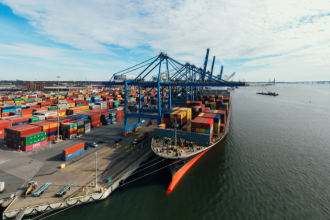Sustainable municipal development requires planning, commitment, and the work of well-prepared institutions, such as the Instituto Econacional, led by Ramalho Souza Alves, which transforms local demands into concrete solutions in the city of Maceió, Alagoas. Technical expertise, strategic vision, and a focus on collective well-being are key factors in developing well-structured projects.
It is helpful to view the municipality as a constantly evolving organism that needs efficient, humane, and financially viable projects to promote balanced growth, inclusion, and socio-environmental responsibility. This involves attracting funding, designing, and executing projects in essential areas such as healthcare, education, the environment, and social assistance.
The Importance of Planning in the Execution of Public Projects
The first step toward achieving sustainable municipal development is the creation of well-planned projects. Building accurate diagnostics, setting clear goals, and using measurable indicators are essential to guide investments strategically. A poorly structured project can waste resources and result in irrelevant or short-lived impacts.
According to Instituto Econacional, planning must be participatory, involving the local community and public administrators to ensure that actions address the real needs of the population. This alignment between technical expertise and social listening enables the institution to transform projects into long-lasting public policies.
Sustainable Projects Focused on Health, Education, and the Environment
Projects centered on humanized public healthcare, inclusive education, and environmental preservation have great potential to create lasting benefits for society. In healthcare, initiatives that prioritize results-based management, the use of care technologies, and the appreciation of public workers enhance access to and the quality of services delivered.

Efforts in ecological education programs, public space conservation, and urban sustainability, for example, demonstrate how planning can balance economic growth with environmental responsibility. According to Ramalho Souza Alves, each area of action must be developed with specific methodologies capable of producing real transformation in the daily lives of the population.
Integration Across Sectors as the Foundation of Sustainable Development
Public projects should not be designed in isolation. The integration of sectors such as health, education, culture, and social assistance strengthens results and broadens the reach of public policies. An educational project, for instance, can incorporate social support actions to prevent school dropout and provide assistance to families in vulnerable situations. This multisectoral approach increases management efficiency and optimizes the use of public resources, promoting a systemic vision of the city.
The Role of the Third Sector in Building Municipal Solutions
The third sector plays a strategic role in addressing municipal challenges. Its flexible operations, close ties with communities, and technical expertise make these organizations valuable allies to public administrators. In many instances, they are able to reach areas where the State alone cannot.
Instituto Econacional emphasizes how well-planned and executed projects by civil society organizations strengthen local governance and foster social participation. According to leader Ramalho Souza Alves, to build ethical, efficient, and public interest-oriented partnerships, the focus on transparency and improving citizens’ quality of life is the most valuable guiding principle.
Paths Toward More Efficient and Sustainable Public Management
Sustainable municipal development is achievable when there is a commitment to planning, ethical execution, and results-driven focus. Ramalho Souza Alves, president of Instituto Econacional, affirms that it is possible to combine competence, social responsibility, and human sensitivity in delivering transformative projects.
Municipal administrators who seek to promote a continuous cycle of sustainable development must invest in planning, technical training, and open dialogue with the third sector. Well-structured projects aligned with the Sustainable Development Goals (SDGs) enable cities to advance with balance, inclusion, and innovation.
Author: Clodayre Daine









